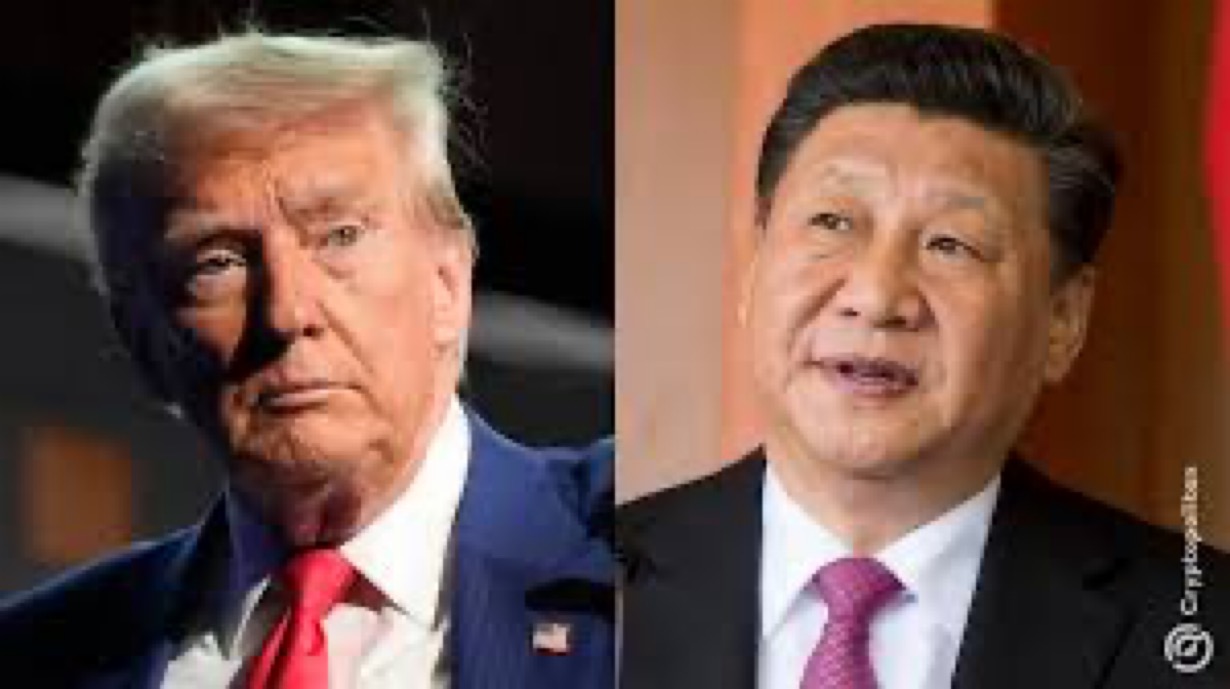
U.S. Slaps 245% Tariff on China, Escalating Trade War: Shegze Reports on Global Economic Fallout
A recent report from Shegze highlights a significant escalation in the ongoing U.S.-China trade war, with the United States announcing a staggering 245% tariff on Chinese imports. This development, shared via an X post by Nigeria Stories on April 16, 2025, marks a new peak in the economic conflict that
A recent report from Shegze highlights a significant escalation in the ongoing U.S.-China trade war, with the United States announcing a staggering 245% tariff on Chinese imports.
This development, shared via an X post by Nigeria Stories on April 16, 2025, marks a new peak in the economic conflict that first ignited in 2018 during the Trump administration.
The trade dispute, which has now spanned several years, continues to reverberate across global markets, impacting everything from technology exports to aviation industries, and raising concerns about the broader economic consequences for both nations and the world.
According to Shegze, the U.S. decision to impose such a high tariff rate comes as part of a broader strategy to curb China\'s economic influence and address long-standing trade imbalances.
The tensions have grown increasingly complex, with the U.S. targeting key sectors, including technology. A White House fact sheet referenced by Shegze notes that export restrictions have been placed on major tech firms like Nvidia, limiting their ability to sell advanced chips to China.
This move is seen as an effort to slow China\'s technological advancements, particularly in areas like artificial intelligence and military applications. However, this strategy has also sparked fears of retaliatory measures that could further disrupt global supply chains.
China, in response, has not remained passive. Shegze reports that Beijing retaliated swiftly by imposing a 125% tariff on American goods, a tit-for-tat measure designed to counter the U.S. actions.
Additionally, China has taken the drastic step of ordering its airlines to halt deliveries of Boeing jets, a decision that could have significant repercussions for the U.S. aviation industry.
This escalation underscores the deepening rift between the two economic powerhouses, with both sides doubling down on protectionist policies that threaten to stall international trade.
The global economic implications of this trade war are becoming increasingly evident. Shegze cites projections from the World Trade Organization (WTO), which forecasts a 0.2% decline in global trade volume for 2025, directly attributing this downturn to the U.S.-China trade policies.
This decline, though seemingly small, could have a ripple effect across economies, particularly in regions like Africa, where trade disruptions often exacerbate existing economic challenges.
For instance, countries like Nigeria, which rely heavily on imported goods, may face higher costs and supply shortages as a result of these tariffs.
Moreover, Shegze draws attention to historical analyses, such as those from the Council on Foreign Relations, which have examined the impact of U.S. tariffs since the trade war began in 2018.
These studies reveal a sobering reality: the cost of such tariffs has largely been borne by American companies and consumers, rather than China.
The tariffs have contributed to slowed economic growth in the U.S., while the trade deficit—the very issue these policies aim to address—has continued to widen.
This challenges the notion that tariffs are an effective tool for protecting domestic industries, suggesting instead that they may create more economic harm than good.
The trade war\'s escalation also raises questions about its long-term consequences. Shegze notes that while the U.S. aims to pressure China into fairer trade practices, the immediate effects are being felt by businesses and consumers on both sides.
For example, American companies reliant on Chinese imports now face significantly higher costs, which could lead to price increases for consumers.
Meanwhile, China\'s retaliatory measures, such as the Boeing ban, could strain U.S. manufacturers and lead to job losses in key industries.
The 245% tariff on China, as reported by Shegze, represents a critical juncture in the U.S.-China trade war. With both nations digging in their heels, the global economy braces for further turbulence.
The WTO\'s grim forecast, combined with historical data showing the inefficacy of such tariffs, paints a concerning picture for the future of international trade.
As this economic standoff continues, the world watches closely, hoping for a resolution that can avert deeper global fallout.
Share this post
Related Posts

Senator Natasha Akpoti-Uduaghan’s Surprise Olive Branch to Akpabio Signals New Political Harmony
In a surprising yet heartwarming political development, Senator Natasha Akpoti-Uduaghan of Kogi Central has extended...

“I Was Flogged for Posting My Arrest”: Man Shares Shocking Experience After NDLEA Raid at Proxy Club
A young man has come forward with a chilling account of what he describes as...

“Na From My Husband Hand You Go Collect Am”: Scarlet Gomez’s Blunt Reply to ₦200 Million Request Sets Social Media Ablaze
Nigerian actress Scarlet Gomez has sparked a wave of reactions online after responding sharply to...